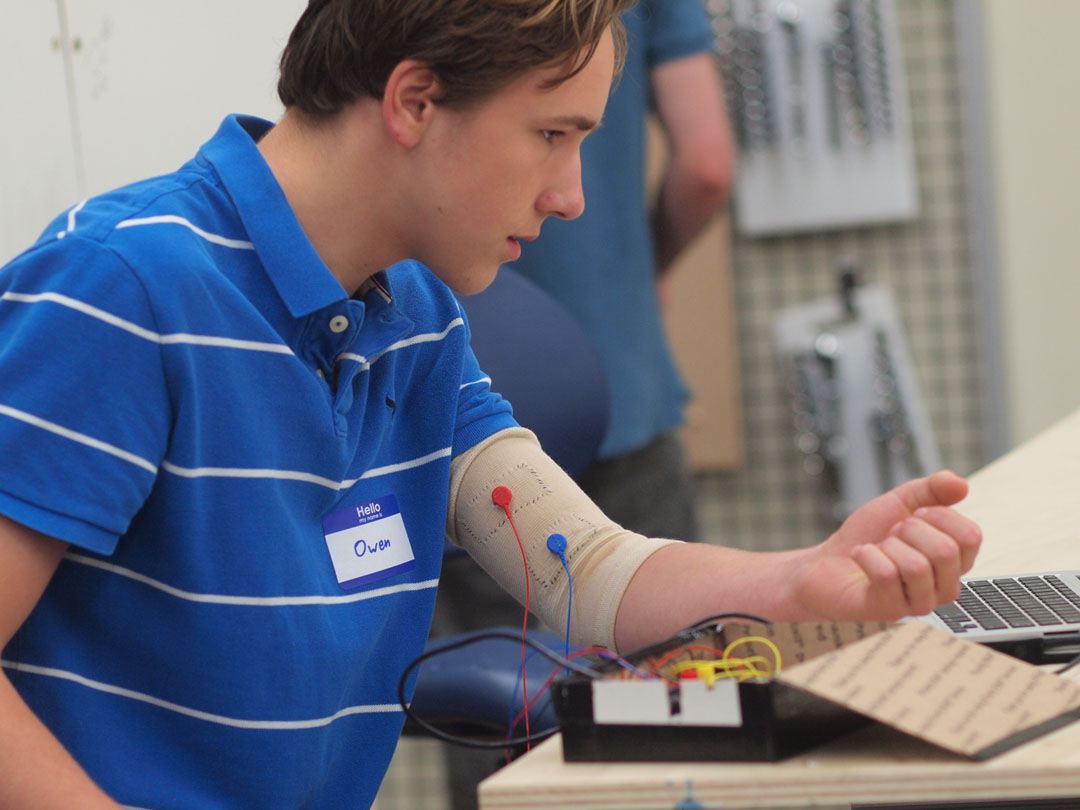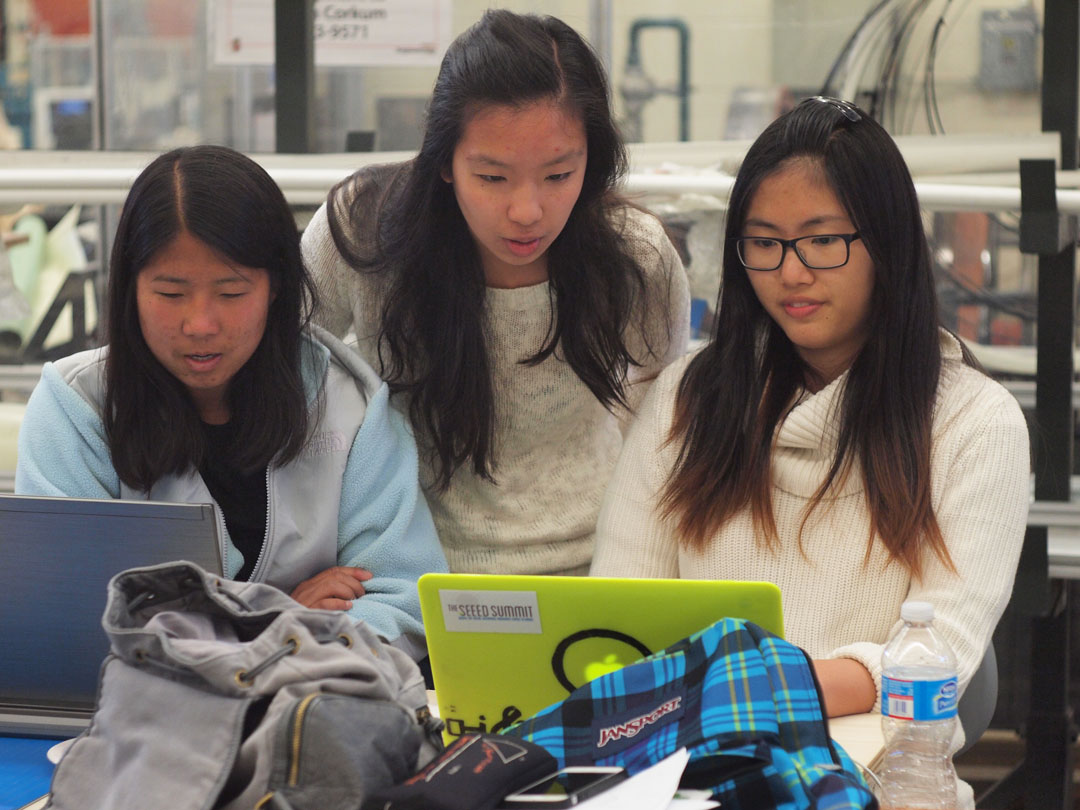PROVIDENCE, R.I. [Brown University] — It started with a list of challenges written on a whiteboard. It ended with new hardware and software tools designed to help people with disabilities.
About 25 students from Brown, RISD, and elsewhere participated Saturday and Sunday, April 26-27, 2014, in an assistive technology makeathon — a two-day session of brainstorming and building in Brown's Design Workshop in Prince Lab. The event was a partnership between Brown STEAM, a student group that aims to deepen connections between STEM fields and the arts, and the SpeakYourMind Foundation, a nonprofit group spun out of Brown's BrainGate lab that helps people with disabilities to communicate.
"We have students from Brown and RISD, so it's this really nice combination of design, engineering, and computer science coming together," said Dan Bacher, senior research and development engineer in the BrainGate lab and founder and executive director of SpeakYourMind. "Everyone is focused on building assistive technologies — building something for someone who has a disability."

The event was patterned after hackathons, the marathon group coding sessions that are becoming increasingly popular on college campuses. The idea is simple: Get a bunch of smart, creative people together in a room, give them some software or hardware challenges, and see what they can create.
In this case, the challenges were based on the real needs of clients whom SpeakYourMind aims to help. The foundation develops low-cost assistive technologies for people who are "locked-in" by paralysis — they can't speak and may have very limited ability to move their bodies. The technologies harness the slightest movements — a turn of the head, a blink of an eye, or a twitch of a muscle — to help people communicate through computers.
To keep the cost of devices down, the group often repurposes existing tools and technologies. For example, frames from 3-D movie glasses, a cheap webcam, and a clever algorithm developed by SpeakYourMind makes for a simple and inexpensive eye-tracking interface to help people control a cursor on a computer screen.
"Simple, reliable and affordable wins every time," Bacher said. "That's what we're trying to build."
And it was with that ethos in mind that the makeathon groups went to work on Saturday and Sunday. The whiteboard in the front of the room had a list of needs and challenges SpeakYourMind clients face. Those needs served as springboards for the makeathon participants.
One SpeakYourMind client is a musician and composer who suffered a debilitating stroke. So a makeathon group wrote a program that enables a user to compose and play back music. It works by scrolling names of musical notes across a screen. The user clicks when the scroll gets to a desired note, which is then placed on a musical staff. That click, with the help of a SpeakYourMind assistive device, can be done with a flick of an eyebrow or twitch of a muscle. Team members Noah Schlottman, a Brown student, and Ryan Mather, a RISD student, plan to put the code online for others to use and expand.

Owen Duke, a 10th grader at Phillips Exeter Academy, had worked previously with Bacher to make a biceps cuff that can detect electrical signals from those muscle twitches. Duke brought his device to the makeathon, where he teamed up with Valah Shah, a Brown graduate student in computer science. Together, they coded software that enables a user to move a cursor with head movements and click on items with a twitch of the biceps.
Other makeathon projects included a glove that can be used to operate a robotic hand, a virtual typing interface for people who can't use a standard keyboard, an interface for Facebook that can be operated by an eye-tracker, and new functionality for an existing email program tailored to people who use assistive computing devices.
"I was really, really impressed," Bacher said of the projects. "At the very least, all of these ideas are going to get put into our pool of potential solutions for future clients. And a lot of the groups are really excited to keep going, which is the most exciting thing."
Hanna McPhee, a senior at Brown, STEAM member, and one of the organizers of the makeathon, said that the partnership between STEAM and SpeakYourMind made for a perfect match.
"The projects SpeakYourMind works on require interdisciplinary teams — from user interfaces, to human factors and ergonomics — these devices require attention from designers, engineers, computer scientists, anthropologists, biologists, etc.," she said. "Both STEAM and [SpeakYourMind] are trying to encourage Brown University students to collaborate on these and other projects with students from multiple concentrations."
McPhee said she was pleased with how the event turned out.
"I was interested in the variety of approaches the teams took with our assistive technology prompts," she said. "The coolest part was the variety of ideas."
- by Kevin Stacey